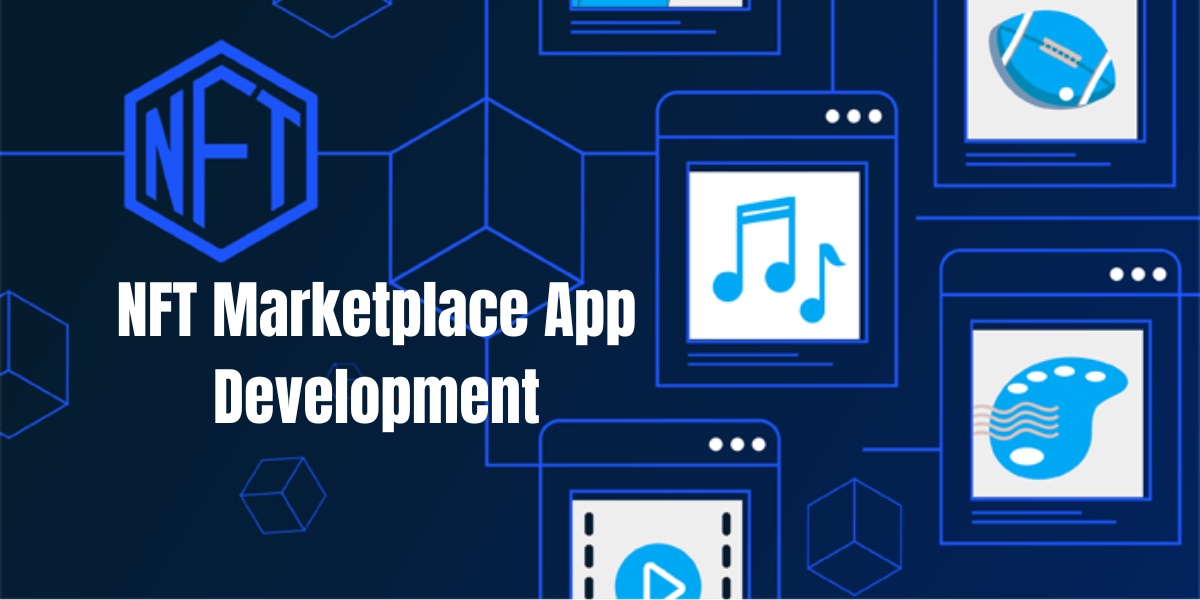In recent years, the world of digital collectibles has undergone a profound transformation thanks to Non-Fungible Tokens. These unique, blockchain-based tokens have opened up a world of possibilities for creators, artists, and collectors alike. NFTs have found their natural home in NFT marketplaces, digital platforms that provide the gateway to the digital collectibles revolution. As this exciting ecosystem continues to evolve, NFT marketplace app development takes centre stage in shaping the future of digital ownership and creativity.
The Digital Collectibles Revolution and the Essential Aspects of NFT Marketplace App Development:
The NFT Revolution: Redefining Ownership
Non-Fungible Tokens have redefined the concept of ownership in the digital age. Unlike cryptocurrencies such as Bitcoin or Ethereum, which are fungible and interchangeable, NFTs are unique and indivisible. Each NFT represents ownership of a specific digital item, whether it's digital art, music, virtual real estate, virtual goods in video games, or any other digital asset. This uniqueness is what gives NFTs their intrinsic value.
NFTs are powered by blockchain technology, which ensures their authenticity, provenance, and scarcity. Ownership and transaction history are transparent and traceable, making NFTs an ideal solution for digital collectibles.
NFT Marketplaces: The Digital Bazaars
NFT marketplaces have emerged as the central hubs of this digital collectibles revolution. These online platforms facilitate the creation, listing, discovery, and exchange of NFTs. Here are some of the key elements that define NFT marketplaces:
- Minting and Creation: Creators can mint NFTs, converting their digital creations into unique tokens. This process involves registering the digital item on the blockchain, which certifies its provenance and uniqueness.
- Listing and Auctions: NFT owners can list their tokens for sale, either at a fixed price or through auctions. Auctions can generate excitement and competition among collectors.
- Discovery: NFT marketplaces provide users with tools to discover new and interesting NFTs. This includes search functionality, categories, trending sections, and user-generated content.
- Wallet Integration: Users need a cryptocurrency wallet to interact with NFTs. Many NFT marketplaces integrate with popular wallets to provide a seamless experience.
- Smart Contracts: Smart contracts underpin NFTs. These self-executing contracts automate various aspects, including transferring ownership and distributing royalties to creators.
- Community Engagement: NFT marketplaces often include features like forums, social profiles, and chat systems to foster community engagement and interaction.
NFT Marketplace App Development: Key Considerations
Developing a successful NFT marketplace app requires careful planning and execution. Here are the essential factors to consider:
- Concept and Niche: Define your marketplace's unique selling proposition (USP). Consider the niche you want to target, whether it's art, music, collectibles, virtual real estate, or another category.
- Blockchain Platform: Choose the appropriate blockchain platform for your NFTs. Ethereum, Binance Smart Chain, Flow, and others offer different advantages and considerations. Select the one that aligns with your project's goals.
- Smart Contract Development: Develop and thoroughly test smart contracts for creating, transferring, and trading NFTs. Ensure they adhere to industry standards and are secure.
- Frontend and Backend Development: Design a user-friendly and visually appealing user interface (UI) and user experience (UX). Develop the frontend and backend components, integrating wallet functionality and database management.
- Security: Implement robust security measures to protect user data and digital assets. Regularly conduct security audits to identify and address vulnerabilities.
- Licensing and Royalties: Implement mechanisms for licensing digital content and distributing royalties to creators each time an NFT is resold.
- Community Building: Create a marketing and community-building strategy to attract users and NFT creators to your platform. Engage with the NFT community and build a strong online presence.
Challenges and Opportunities
While NFT marketplace app development offers tremendous opportunities, it comes with its own set of challenges. Here are some key considerations:
- Environmental Impact: Some blockchain platforms, especially those using Proof of Work (PoW) consensus mechanisms, have drawn criticism for their environmental impact. Developers must consider eco-friendly blockchain alternatives to minimize their carbon footprint.
- Regulatory Environment: The regulatory landscape for NFTs is evolving, and compliance requirements can vary by jurisdiction. Staying informed about legal obligations and compliance is crucial to avoid potential legal issues.
- Scalability: As NFTs gain popularity, the demand for NFT marketplaces can surge rapidly. Developers must ensure that their platforms can handle increased user activity and scale efficiently.
- User Education: NFT marketplaces should provide educational resources to help users understand the technology, how to create NFTs, and how to manage their digital collectibles.
Conclusion
The digital collectibles revolution, powered by Non-Fungible Tokens, is reshaping the way we create, own, and trade digital assets. NFT marketplace app development lies at the heart of this transformation, offering creators, artists, collectors, and investors a unique platform to participate in the digital collectibles ecosystem. By focusing on user experience, security, compliance, and community building, NFT marketplace app developers can contribute to the growth of the NFT space while providing a platform for creators to thrive in the virtual world. As the digital landscape continues to evolve, NFT marketplaces are set to play a pivotal role in shaping the future of digital ownership and creativity.


No comments yet